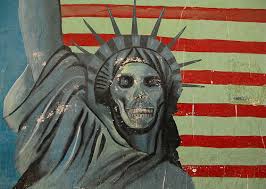Humanity: The Able but Unwilling Species
Miracles, Human Nature, and Beneficent Behavior

When philosophers have considered miracles, their possibility was usually the concern. Were miracles possible? Some thought so, some not. But answers to that question didn’t tell us anything about human beings themselves. That a revered godhead made miraculous things happen is not indicative of anything that people can or cannot do. People are not gods! But thinking about miracles can teach us a lot about ourselves.
For instance, Jesus is said to have performed numerous miracles of various kinds. Miraculous cures, exorcisms, resurrections, and group feedings. Although they may have been important to the people on whom they were performed, in the great scheme, they were not noteworthy and went unnoted by any objective chronicler. They were truly trivial. Yet the implications of performing or not performing miracles are quite revealing.
Consider the feedings. Jesus, using only five loaves and two fish, fed thousands of men, women, and children, and had food left over. But if Jesus had that ability, why didn’t he use it to feed the hungry everywhere he went? He is said to have resurrected three ordinary people who apparently died of natural causes, but why only three? And why nobody of any importance? The answer seems obvious: either he couldn’t or he was unwilling to. Assuming he had the ability, he must have been unwilling, and that’s a significant implication,
Dogma states that mankind is made in the image of God. What follows is that is God has the ability to do beneficent things but is unwilling to. So when mankind has the ability to do good, that people will be unwilling to do so can be expected. The same implication follows even if mankind’s conception of God is anthropomorphic, that mankind’s conception of God is made in the image of man. The conceptions of man and God are identical in any case. What follows in either case is that both mankind and God lack a propensity to act morally. The ability to do good is often accompanied by an unwillingness to do it.
My anecdotal observations of the actions of human beings support this conclusion. How many times do people who can clearly do the right thing fail to? Why? Numerous reasons can be cited but all can be subsumed in an unwillingness. In fact, this unwillingness seems to be such a fundamental attribute of human nature that human beings attribute it their gods.
But ask yourselves what we would say about a physician who had the ability to restore the sight of the blind but only used it rarely and selectively? Would we think highly of him? Yet the manufacturer of a helpful drug who supplies it only to those who can afford it is not thought poorly of. What kind schizophrenia is this? Americans bemoan the beheading of an American by ISIL but cheer the assassination of Osama Bin Laden. Yet the Commandment says thou shall not kill, not thou shall not kill countrymen. People are expected to be truthful in counts of law but are assumed to be dishonest in the marketplace. The dishonesty is legally called puffery! And what do we say about a nation that can feed its hungry but is unwilling to, that can house its homeless but it unwilling to, that can treat its sick but is unwilling to, that can pay its laborers a gainful wage but is unwilling to? Evil persists in this world not because the good do nothing but because those with the ability to do good are unwilling to.
Hillary Clinton has called America a force for good in the world. Is she delusional or merely dumb? Historically, America has never been a force for good in the world. Not once! Unfortunately no other nation has either. Mankind’s unwillingness to do good even when able is pervasive.
So if mankind is to be prevented from exterminating itself, the conception that mankind has of itself and of its gods must be altered fundamentally. Otherwise, death, destruction, and human suffering will continue unabated until everything disappears in a all enveloping conflagration.
John Kozy is a retired professor of philosophy and logic who writes on social, political, and economic issues. After serving in the U.S. Army during the Korean War, he spent 20 years as a university professor and another 20 years working as a writer. He has published a textbook in formal logic commercially, in academic journals and a small number of commercial magazines, and has written a number of guest editorials for newspapers. His on-line pieces can be found on http://www.jkozy.com/ and he can be emailed from that site’s homepage.

